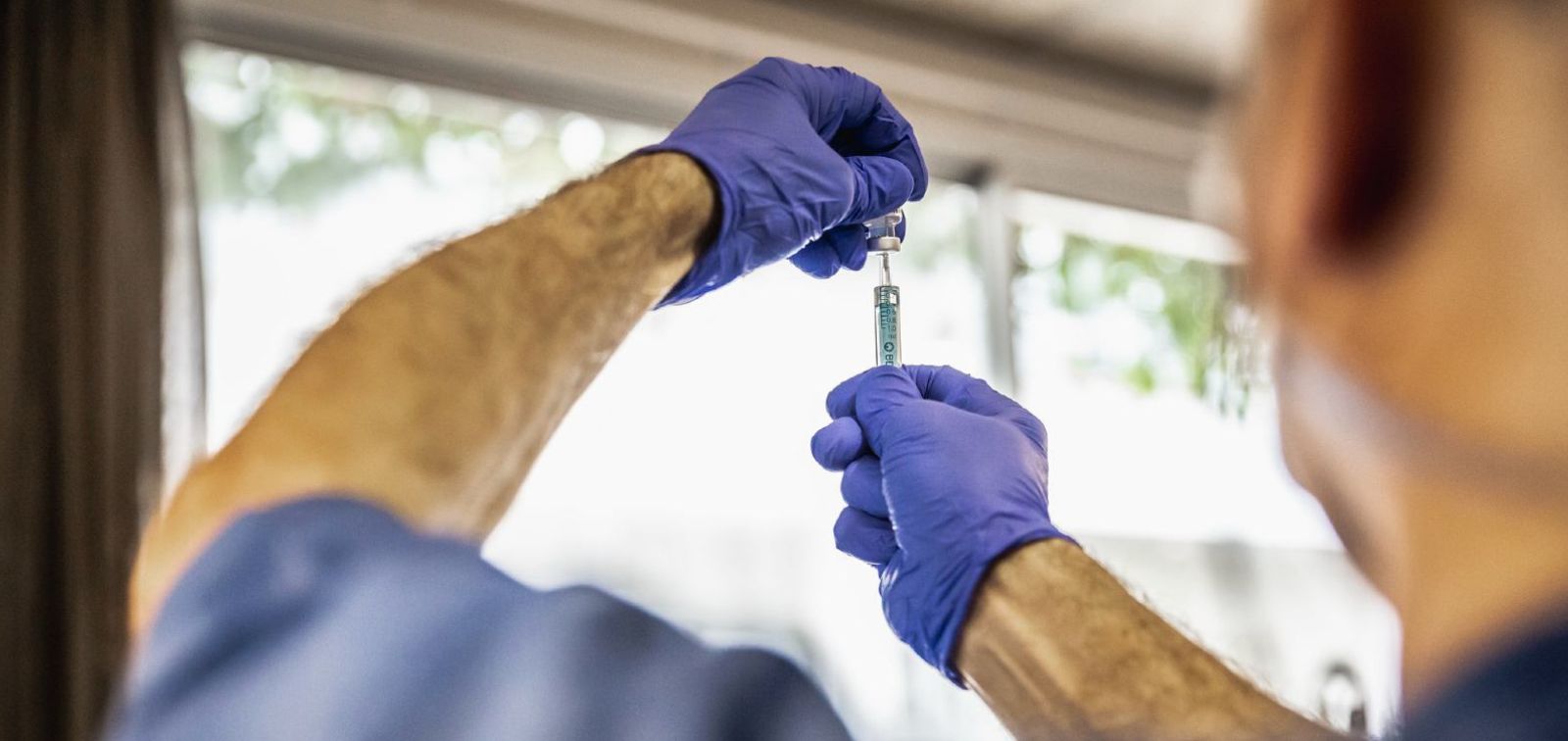Una parte significativa de la población mundial sigue confiando en las vacunas, según una encuesta realizada en 23 países
Las respuestas de 23.000 personas apuntan a la necesidad de estrategias de comunicación pertinentes a nivel local para aumentar la confianza en las vacunas
30.04.2024
Una proporción sustancial de la población mundial sigue dispuesta a vacunarse contra enfermedades como la COVID-19, según una nueva encuesta realizada en 23 países que representan más del 60% de la población mundial. El estudio, publicado en Nature Medicine, ha sido codirigido por el Instituto de Salud Global de Barcelona (ISGlobal), centro impulsado por la Fundación ”la Caixa”, y la ‘Graduate School of Public Health and Health Policy de la City University of New York’ (CUNY SPH).
El enorme impacto humano de la pandemia de COVID-19 condujo a la rápida investigación y desarrollo de vacunas seguras y eficaces basadas en modelos existentes, y dio lugar a la mayor campaña de vacunación de la historia. SOlo un año después de que la COVID-19 fuera declarada pandemia, más de 250 millones de personas en todo el mundo habían sido vacunadas contra SARS-CoV-2, el virus que la causa.
Aunque ya no se considera una amenaza significativa para la salud pública, el virus sigue circulando y mutando. Esto significa que siguen siendo necesarios refuerzos adaptados a las variantes, especialmente para las muchas personas con mayor riesgo de enfermar gravemente y morir.
"Hoy en día, la reticencia ante las vacunas, la fatiga pandémica y la fatiga vacunal representan los principales desafíos para que la gente se mantenga al día con sus vacunas, incluidas las de refuerzo de COVID-19", afirma Jeffrey V. Lazarus, jefe del Grupo de Investigación en Sistemas de Salud de ISGlobal, profesor de Salud Global en CUNY SPH y coordinador del estudio.
La confianza en las vacunas sigue siendo alta
Mediante una serie de encuestas anuales realizadas en 23 países a lo largo de la pandemia, Lazarus y sus colegas han evaluado la confianza mundial en las fuentes de información y en las vacunas. En esta cuarta encuesta a 23.000 adultos, realizada en octubre de 2023, el equipo de investigación descubrió que la intención de vacunarse contra la COVID-19 era ligeramente inferior (71,6% de los encuestados) a la de 2022 (87,9%). Sin embargo, la confianza general de la población mundial en la vacunación no disminuyó. Más de 3 de cada 5 participantes (60,8%) dijeron estar más dispuestos a vacunarse contra enfermedades distintas de la COVID-19 como resultado de su experiencia durante la pandemia, mientras que sólo el 23,1% se mostró menos dispuesto.
"Este hallazgo sugiere que existe una apertura general a la vacunación que puede utilizarse para aumentar la confianza en las nuevas generaciones de vacunas y refuerzos contra la COVID-19", afirma Ayman El-Mohandes, coautor del estudio y decano de CUNY SPH. "Debemos diseñar mensajes dirigidos a los comunicadores de confianza para fomentar la aceptación de las vacunas".
La nueva encuesta también evaluó la confianza del público en las fuentes de información utilizadas durante la pandemia. En general, las fuentes más fiables fueron los profesionales sanitarios (con una puntuación de 6,9 sobre 10) y la Organización Mundial de la Salud (6,5 sobre 10), lo que pone de relieve la importancia de seguir contando con estas fuentes para futuras campañas de comunicación. No obstante, hubo cierta variabilidad entre países. Por ejemplo, los líderes religiosos obtuvieron una puntuación de 3,16 en Suecia, pero de 6,72 en India.
La confianza pública en la capacidad de las autoridades, la comunidad científica y las organizaciones sanitarias para gestionar futuras pandemias presentaba un panorama desigual. "La gran variabilidad de la confianza observada en los distintos países deja claro que para mejorar la confianza en las vacunas a nivel mundial se necesitarán estrategias de comunicación locales adaptadas al punto de vista cultural", afirma Lazarus. "Urge ponerse al día con las vacunaciones de rutina y prepararse para posibles nuevas amenazas pandémicas, por lo que debemos seguir vigilando la confianza en las vacunas", añade.
Los datos de la encuesta son altamente representativos de las distintas regiones geográficas del mundo y de los distintos grupos demográficos (edad, sexo, nivel educativo) dentro de cada país.
Referencia
Lazarus, J.V., White, T.M., Wyka, K. et al. Influence of COVID-19 on trust in routine immunization, health information sources and pandemic preparedness in 23 countries in 2023. Nat Med (2024). https://doi.org/10.1038/s41591-024-02939-2



